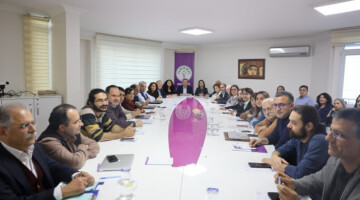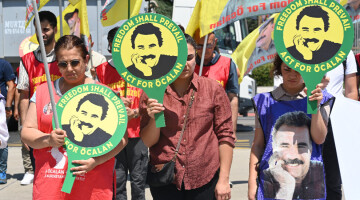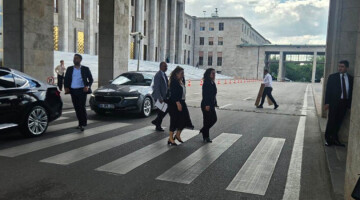Elî Qazî was one of the last contemporary witnesses of the Republic of Mahabad, symbol of the Kurdish will for independence. The ex-diplomat and former chairman of the Kurdistan Freedom Party (Partiya Azadiya Kurdistanê, PAK) has died in Bonn at the age of 88. For Kurdish society, his death means an irreplaceable loss.
Elî Qazî - also Ali Ghazi - was born in December 1933 in the Mahabad city of Eastern Kurdistan. The city is located about a hundred kilometres east of the border between Iran and Iran on a plateau bordered by the foothills of the Zagros Mountains. Elî Qazî was thirteen when his father Qazî Mihemed proclaimed the autonomous Komara Kurdistanê shortly after the Second World War and declared Mahabad its capital. But it only lasted eleven months. Its president, Gazî Mihemed, and two of his comrades-in-arms were hanged by Iran in March 1947 in Çarçira Square in Mahabad.
Elî Qazî was a witness to the executions. He came to Germany, went to school there and studied. In Shah's time, he was head of department at the Persian embassy in Bonn, and in the 1990s he acted as a mediator between Abdullah Öcalan and the German government. It was the time when the Kurdistan Workers' Party (PKK) was banned from operating in Germany. It was also Elî Qazî who accompanied the CDU politician Heinrich Lummer to the PKK headquarters in Damascus, Syria, in 1995. Authorised by Öcalan, Qazî negotiated with Bonn about shortening the German trials of PKK members. This brought him into the sights of the Turkish secret service MIT, which immediately set up a plot. There was talk of alleged money laundering, and Elî Gazî had to spend more than three weeks in pre-trial detention in Bonn in 2013 because of this scenario with Ankara as the point of departure.
At least three assassination attempts targeted Elî Qazî during his life, and he survived them all. His sister Efat Qazî was less fortunate: she was killed in 1990 in exile in Sweden when she opened a letter bomb addressed to her husband. The attack could not be solved, but is blamed on the Iranian regime.












